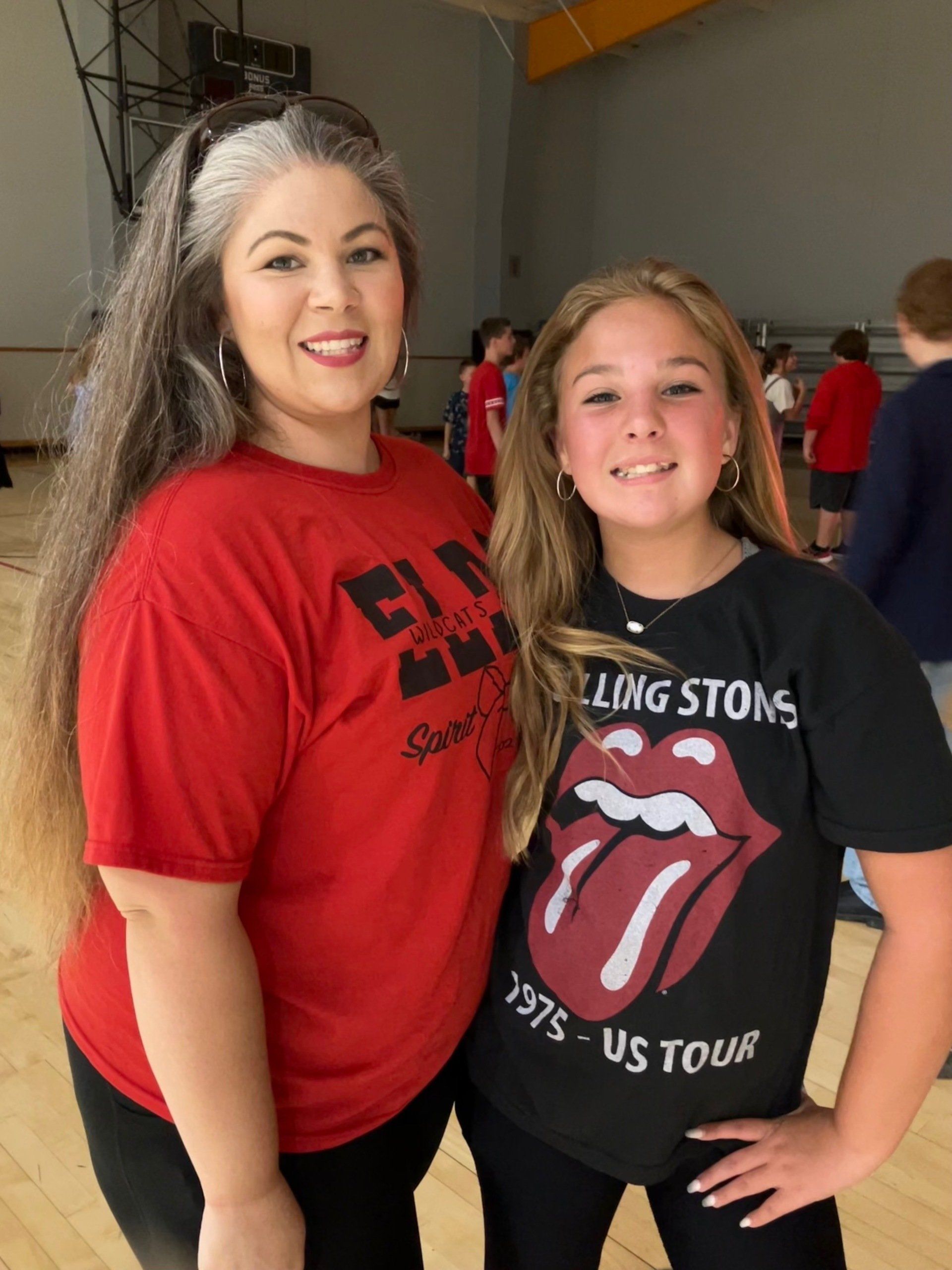How to Save a Life
FORMER ADDICT ALIVE TODAY THANKS TO DAUGHTER’S QUICK ACTIONS
WRITTEN BY AMY PALSER
Former Addict Alive Today Thanks to Daughter’s Quick Actions
Written by Amy Palser

Ashlee Nelson with daughter Maci-Lynn
Tragedy was the seed that took root in Ashlee Nelson’s heart — a seed that grew into a full-grown tree of depression, hurt and anger. The El Dorado woman tried to smother it with alcohol, pain killers, and eventually fentanyl. She would get clean for a while, but then the craggy tree would remind her it was there, and she would fall back into addiction.
But on February 11, 2022, everything changed. That was the day Ashlee, a stay-at-home mom of three, died in her kitchen after snorting half of a “dirty 30” fentanyl pill she had bought off the street. She was up to 13 pills a day, spending $500 to $1,200 a week, and her tolerance to the drug was high. Whether the pill she snorted that day was pure fentanyl or laced with meth or some other drug, she’ll never know. What she does know is that she collapsed immediately after taking it.
Her 11-year-old daughter, Maci-Lynn, had been at a friend’s house, but came back home and found her mom lying unresponsive on the kitchen floor. She called 911 and a dispatcher walked the girl through CPR maneuvers until an ambulance arrived. EMTs gave Ashlee repeated doses of Narcan, a medicine that rapidly reverses an opioid overdose, but they were unsuccessful.
Finally, shocks from a defibrillator brought Ashlee back to life. “My husband, police officers, and EMS were all around me when I woke up,” she said. Despite the gravity of the situation, Ashlee refused to go to the hospital. “I refused to admit I was using again.”
Painful Truth
Five days later, at the pleading of her husband, her parents, and her in-laws, Ashlee checked herself into Bel Aire Recovery Center. While she had been in rehab before, this time was different. “When I went to Bel Aire, I not only saw my counselor two to three times a week, but I saw a psychologist and I got diagnosed with bipolar disorder and got on meds,” she said. She also started taking Suboxone, which blocks the effects of opioids.
The real turning point in rehab came when a counselor invited Maci-Lynn to share her feelings during a session with her mom. “She really let me have it for an hour and a half,” Ashlee recalled. “She said that she was afraid to be a kid. She would follow me around the house, and if I shut the door she wondered what I was doing. The first few weeks I was in rehab she couldn’t go in the kitchen because she would have flashbacks of seeing me there. She told me, ‘I’m mad at you but I love you.’ ”
Ashlee never realized before how much her addiction was hurting Maci-Lynn, sons Jordan, 9, and Conner, 7, and husband Brian. “I pawned my wedding ring so I would have money,” she said. “That really hurt my husband, and rightfully so.”
Finding Freedom
After 33 days in treatment, Ashlee returned to her family with a new lease on life. For the first time ever this summer she watched Maci-Lynn compete in softball tournaments without the nagging pull of addiction. Ashlee continues to receive outpatient care at Center for Change in Wichita, which offers treatment for any opioid addiction. “Without them, I don’t know that my recovery would be as good as it has been,” she said.
Ashlee has been able to talk about her journey in counseling and support groups, sharing the heartache that started it all: the late-term loss of twins in 2009. ”I just have more outlets that I wasn't willing to talk to before,” she said. “I’ve gone into Wichita and hit meetings. I’m able to freely talk to my parents about the issues I'm having, as well as my husband.”
Now six months drug-free, she also tells her story to new rehab patients at Bel Aire. “I tell them: If you have kids and you are in addiction, sit down with them, look them in the eye and ask them what they think about you. To have your child tell you they are afraid … It will change your way of thinking.”
SUBSCRIBE TO SPLURGE!
Thank you forsubscribing to Splurge! Magazine
Please try again later.
ADVERTISE WITH SPLURGE!
Send us your contact information & we’ll schedule an appointment with you as soon as possible!
